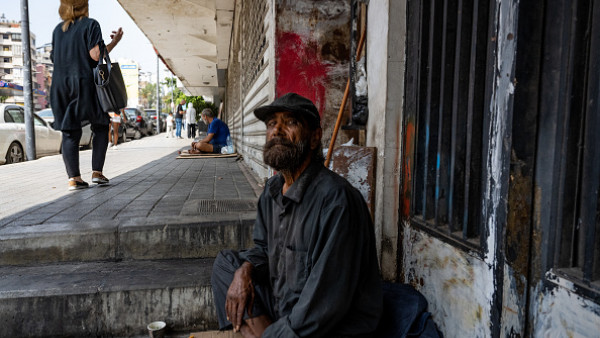The World Bank said the poverty gap had risen and was worse in certain regions [Getty]
A third of Lebanese people are impoverished with poverty rates tripling in a decade, the World Bank said Thursday, as the country grapples with years of economic meltdown and war in the south.
One in every three Lebanese “was poverty-stricken in 2022,” the World Bank said in a report covering about 60 percent of the country’s population.
The institution could not access data from the northeastern Hermel region or from parts of the country’s south – where Hezbollah and Israel have exchanged cross-border fire for months following the start of the Gaza war.
“Not only has the share of poor Lebanese nationals tripled to 33 percent from a decade ago, but they have also fallen deeper into poverty with the poverty gap rising,” the report said.
The poverty rate reached as high as 70 percent in the northern region of Akkar which borders Syria.
The findings highlight “the critical need to improve targeting the poor and expand the coverage and depth of social assistance programmes,” said World Bank Middle East country director Jean-Christophe Carret.
Poverty is also rife among Lebanon’s large refugee population.
The country says it currently hosts around two million people from neighbouring Syria – the world’s highest number of refugees per capita – with only 785,000 registered with the United Nations.
“Syrian households have been hard hit by the crisis,” the World Bank said, reporting almost nine out of every 10 Syrians were poor.
The country is also home to many Palestinian refugees.
Riad Salameh and the making of Lebanon’s economic collapse ⬇ https://t.co/DVHxlz28p5
— The New Arab (@The_NewArab) August 28, 2023
The protracted crisis in Lebanon has forced households to cut back “on food consumption and non-food expenses, as well as reducing health expenditures, with likely severe long-term consequences,” the report said.
“Food insecurity is on the rise” in Lebanon, the body found, with poor households twice as likely to cut meal portions or the number of meals, borrow food or rely on assistance from friends and family.
The poor were also “nearly four times as likely to have an adult member restrict their food intake to feed their children,” the report said.
Also on Thursday, a visiting International Monetary Fund delegation warned that the war in Gaza was taking a toll on Lebanon’s economy.
“The negative spillovers from the conflict in Gaza and increased fighting at Lebanon’s southern border (with Israel) are further exacerbating an already weak economic situation,” the IMF said in a statement.
War in the south has internally displaced tens of thousands, damaged infrastructure, agriculture and trade in southern Lebanon and slashed tourism.
Last December, the World Bank warned that the Gaza war would push crisis-hit Lebanon’s economy back into recession, blaming mainly a “shock to tourism spending”.
On Thursday the IMF again called for Beirut to implement long-stalled reforms to save Lebanon’s economy, which collapsed in late 2019.
In 2022, Lebanon and the IMF reached a conditional agreement on a $3-billion-dollar loan package, but politicians, widely accused of corruption, have yet to enact the painful reforms demanded by the IMF to kickstart the programme.
Lebanon has been governed by a caretaker government with limited powers and without a president for more than a year as lawmakers have repeatedly failed to elect a new leader.


